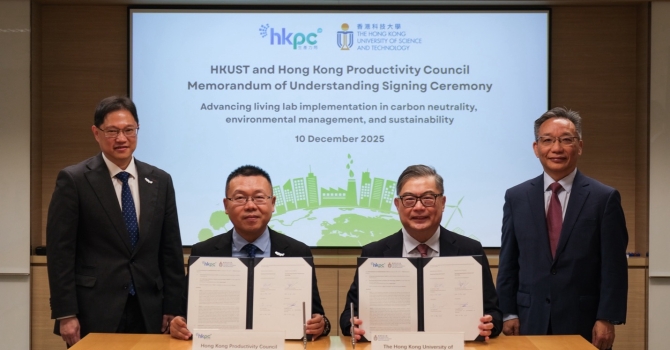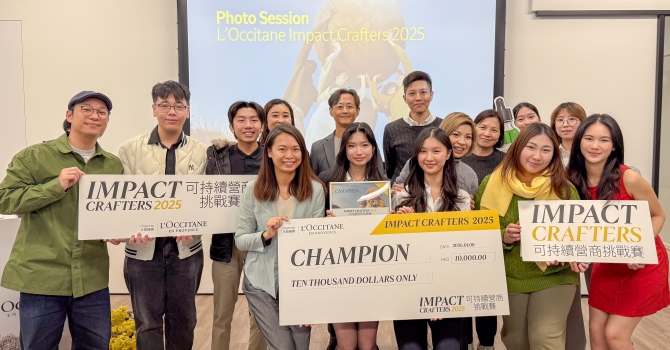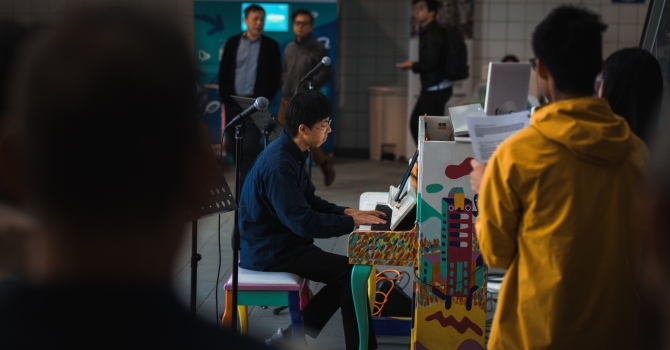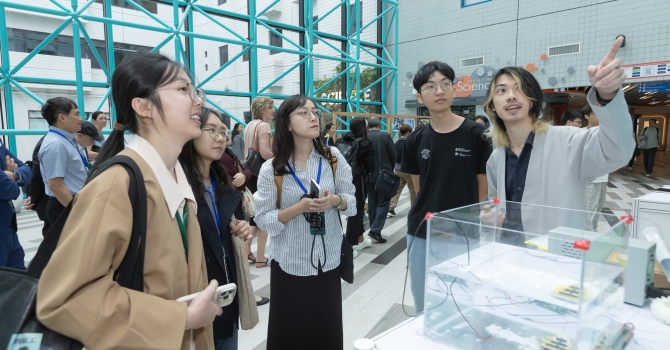2023/24 Sustainable Operation Performances
As we have completed the 2023/24 academic year, we find ourselves at the midpoint of our journey towards the 2028 Sustainability Challenge, encompassing five key operational targets: Energy and GHG, Waste to the Landfill, Water, Landscape and Biodiversity, and Community Well-being. In particular, we have developed comprehensive operation initiatives on waste and energy reduction.
For our waste management efforts, our aim is to reduce landfill waste by 75% compared to the 2014 benchmark by 2028. Over the past year, we have achieved a remarkable 47% reduction below the baseline, with 69% attributed to recycling practices and 31% to waste avoidance. To further reduce the amount of landfill waste, we have introduced a Municipal Solid Waste charging program for specific campus users, despite the city-wide suspension by the government. Furthermore, initiatives like the Zero Plastic Takeaway Container and Lunchbox Lending machines have helped us avoid 130,000 non-biodegradable takeaway containers, and 8,930 disposable takeaway containers. As a demonstration of HKUST’s commitment to reducing waste by extending the life of our resources, acacia trees that were felled to make way for campus development were successfully reused instead of going to landfill. The harvested acacia wood is being turned into campus furniture, HKUST souvenirs and awards, and have been incorporated into the sustainable design of the newly renovated Student Center and newly opened MSc Learning Hub in Kwun Tong.
Regarding our energy saving objectives for 2028, our target is to surpass the Hong Kong Government's energy reduction goal by achieving a 15% cut from our 2014 usage levels. Despite substantial campus expansion over the past decade, the increase in electricity usage was limited to a rise of 3.9% from the 2014 baseline, greenhouse gas emissions dropped by 34%.To mitigate this trend, we're enhancing existing infrastructure in buildings with energy-efficient upgrades such as lifts, lighting systems, and virtual stack fans reconfiguration. One particular effort yielding tangible outcomes is the replacement of more energy efficient High Mast Lighting at our outdoor sports facilities, saving 50% in energy usage and 25,000 kWh annually. The university is investing up to HK$40 million to upgrade 30% of campus parking spaces with charging capability for electric vehicles. Additionally, we have ramped up our solar panel installations at Shaw Auditorium and staff housing, leading to a 6% rise in renewable energy generation. For new construction projects, our Net-Zero Building Standards require energy-efficient design that passively save energy, offer additional space for solar panels, and incorporate metering systems.
For our other achievements relating to water, waste, landscape and biodiversity, and community well-being, please visit our website here or you may check the performance data by clicking here. We also invite you to join our Green Team as we strive towards the 2028 Sustainability Challenge. Together, through small yet impactful steps, we can make a significant difference.



